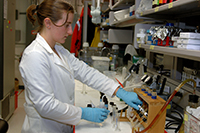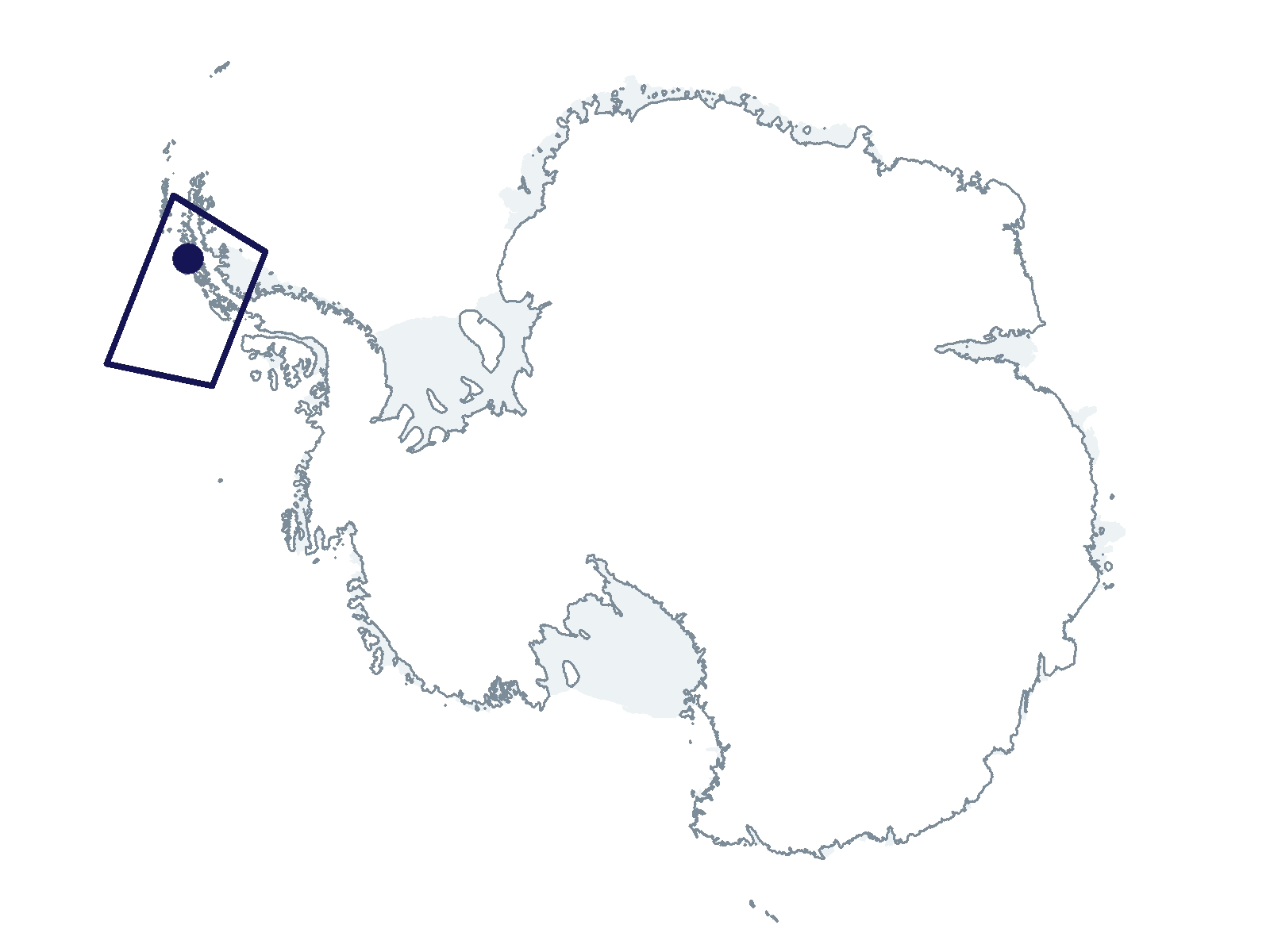2022-2023 USAP Field Season
Project Detail Project TitlePalmer, Antarctica Long-Term Ecological Research (LTER): land-shelf-ocean connectivity, and ecosystem resilience and transformation, in a sea-ice influenced pelagic ecosystem Summary
Event Number:
Program Director:
ASC POC/Implementer: Principal Investigator(s)
Dr. Deborah Steinberg
Project Web Site: Location
Supporting Stations: ARSV Laurence M. Gould, Palmer Station DescriptionPalmer Long-Term Ecological Research (PAL-LTER) started in 1990 to address the hypothesis that the annual sea-ice cycle may be the major determinant of spatial/temporal changes in the structure and function of Antarctic marine communities. Research now includes bacteria, viruses, phytoplankton, krill, macrozooplankton, penguins, seabirds, and marine mammals. The PAL-LTER model traces the effects of changing climate and the extent, duration, and seasonality of sea ice on ecosystem composition and dynamics in the West Antarctic Peninsula, where satellite observations over the past 35 years indicate the average duration of sea ice cover is now about 90 days shorter. Six collaborative projects on the ARSV Laurence M. Gould and at Palmer Station will use moorings, numerical modeling, oceanographic cruises, and environmental sampling to address core hypotheses. Field Season OverviewPalmer Station Two team members will use net tows and acoustic surveys to sample the zooplankton and ichthyofaunal communities and collect live fishes for thermal tolerance experiments. Net tows and concurrent acoustic surveys will be carried out twice per week at PAL-LTER Station E from a Rigid-Hulled Inflatable Boat (RHIB) equipped with a research winch and hull-mounted EK80 and occasionally at Station B for larval fishes. Hook and line fishing will be conducted opportunistically to collect fishes that are too large to be captured effectively by net tows. Twice weekly trips with other PAL-LTER groups into the Palmer Deep Canyon (Adelie penguin foraging area) and Bismarck Strait (gentoo penguin foraging) will be conducted through the field season. ARSV Laurence M. Gould The sampling region extends from Palmer Station south to Charcot Island and from onshore to the continental shelf break adjacent to the Antarctic Circumpolar Current. Ecological and biogeochemical processes are studied by combining the ship and zodiac measurements with data collected from drifting sediment traps and physical oceanographic moorings. They will conduct several two to three day Process Studies in selected areas to study key processes in greater detail than possible at the regular grids stations. Several graduate students are conducting PhD Thesis research in close collaboration with the field teams. Their research is a central part of the overall objectives. Deploying Team Members
|
2022-2023 Science Planning Summary



For USAP Participants |
For The Public |
For Researchers and EducatorsContact UsU.S. National Science FoundationOffice of Polar Programs Geosciences Directorate 2415 Eisenhower Avenue, Suite W7100 Alexandria, VA 22314 Sign up for the NSF Office of Polar Programs newsletter and events. Feedback Form |



